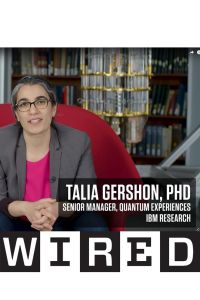Join getAbstract to access the summary!

Join getAbstract to access the summary!
Talia Gershon
Quantum Computing Expert Explains One Concept in 5 Levels of Difficulty
WIRED has challenged IBM’s Dr. Talia Gershon (Senior Manager, Quantum Research) to explain quantum computing to 5 different people: a child, teen, a college student, a grad student and a professional.
Wired, 2018
What's inside?
What’s at the heart of computing’s quantum leap into everyone’s future?
Recommendation
It’s not easy to cut through the buzz on quantum computing and get to the heart of what’s happening and what it means. Will everyone have quantum computers in their pockets in 10 years’ time? Are all secure communications now an open book? Is it just traditional computing at warp speed? At Wired’s invitation, Dr. Talia Gershon from IBM discusses all this and more, finding something interesting to say about it for every age group. A truly enjoyable and interesting short summation of where people are and what they still need to do, before quantum computing is part of everyone’s daily life.
Summary
About the Speaker
Dr. Talia Gershon specializes in artificial intelligence and quantum computing at IBM.

















Comment on this summary